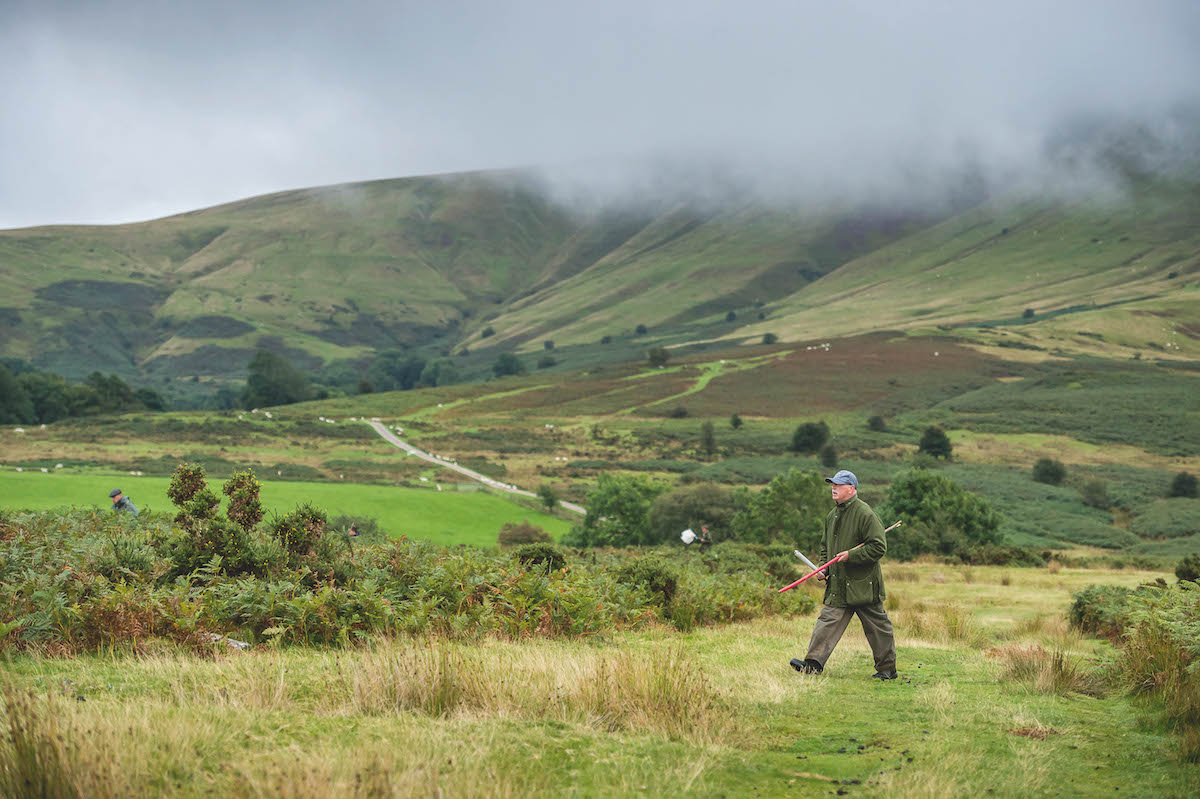Shooting in Wales must up its game: here’s why
Welsh fieldsports are facing many political challenges, writes Gethin Jones, so now is the time for the community to act

Welsh fieldsports are facing many political challenges
In March 2022, Scottish gamekeeper Matt Beaumont set a Caledonian wild cat among the Welsh pigeons with a Facebook post headed “Wales to be country-sports free by 2024”. For reasons best known to himself, he claimed that the Welsh government “together with Natural Resources Wales have announced their intentions to ban all fieldsports, including angling, in Wales by 2024”.
This entirely fake news resulted in a request for clarification of the Welsh government’s official position from Samuel Kurtz MS, chair of the Senedd’s Cross-Party Group on Shooting and Conservation. It was a letter on 26 May from Julie James, the Labour Minister for Climate Change, confirming that the statements made in the post “were incorrect and the claims are baseless” that finally brought the matter to a close.
This episode illustrates perceptions of the apparent permanent ‘state of war’ between Cardiff Bay and the Welsh fieldsports community. Behind the hype, however, a closer examination of the relationship reveals a far more complex picture. Just as bara brith may appear uniform on the outside, its conglomerate composition is only revealed once the loaf is sliced.

The Welsh government is funding a project to list the best sources of game meat in Wales.
Recreational shooting in Wales
The Labour-controlled Welsh government certainly isn’t the biggest fan of recreational shooting. This was more than hinted at in a letter from Julie James in November 2021 in which she stated that “the Welsh government do not support the shooting of live quarry as a leisure activity”. Is the Welsh government so ideologically opposed to shooting that it wants the sport banned? I don’t think so. To be fair, the minister’s comments were made in response to a request from a shoot for financial support during the pandemic and it might be possible that her disdain only extends to commercial shooting.
The existence of the Welsh Senedd Cross-Party Group on Shooting and Conservation, established by MSs in 2014, is tangible evidence that all Welsh political parties at least acknowledge shooting’s demonstrable benefits in terms of economic support for rural communities and nature conservation in Wales.
Shooting in Wales faces many political challenges in both the short and long term, many of which originate directly from the often contradictory policies of the Welsh government. At the most recent meeting of the Cross-Party Group, Ian Danby, BASC’s head of biodiversity, explained how predator control is essential to protect Wales’s dwindling curlew population.

Land management and habitat regeneration of Ruabon Moor has seen a return of the red grouse
The Welsh government’s plan to ban fox snares, as well as recent changes to the general licences, will restrict options for pest controllers in managing generalist predators and, apart from being great news for corvids and foxes, is likely to compromise the breeding prospects of declining species. Political discourse over such emotive subjects as shooting often result in both ‘sides’ becoming entrenched, meaning that little progress is made over important issues.
Stuart Llewellyn, shooter, fisherman and practical conservationist, fears discussions over the general licences have become too entrenched, with species used as pawns by shooters as well as those ideologically opposed to lethal control. “Do we really need jays, magpies and rooks on the general licence?” he asks. “The general licence should be a dynamic instrument, with species being added to or taken off the list depending on circumstances.”
Steve Griffiths, BASC’s director for Wales, sees mixed prospects for shooting’s future. “The Welsh government will move in step with Defra on the consultation over pheasant cages. They may be banned for use in Wales, and there may be regulation on the way for driven shoots concerning the numbers of birds which can be put down.”
Things aren’t entirely bleak, however, as Mr Griffiths sees a number of positives for shooting: “Moving away from the use of lead shot is putting us on the front foot, although a lot will depend on lead time to putting a complete stop on its use.”

Gethin Jones waist-deep in cold Welsh water while goose shooting in February
Eating more game
Mr Griffiths confirmed that BASC Wales negotiated 95% of what it wished for and the general licences are now workable, even if they do not satisfy everyone. On the plus side, the Welsh government is funding a £1 million project by Food Cymru that will list the top 50 places to source game meat in Wales, from top restaurants to the best butchers. Getting the public to eat more game certainly has to be good news and he concludes: “This makes me hopeful for continued positive engagement with Welsh government in the promotion of sustainable shooting and its contribution to conservation.”
Encouragingly for Welsh shooters, Mr Griffith’s words are echoed by Mabon ap Gwynfor MS, Plaid Cymru’s agriculture and rural affairs spokesman. “Shooting is an integral part of rural life and controlling pests on agricultural land — and indeed beyond — is essential for a healthy environment and industry. Shooting is therefore an offshoot of this rural life. Gamekeepers are essentially shepherds, but of gamebirds and not sheep.”
One common theme among the fieldsports community is that legislation emanating from Cardiff should be seen to be strictly evidence-based. Shooting also has to step up to the mark. If we insist that our sport is ethical, sustainable and has positive conservation benefits, then we need to be clear about the science and facts.
The GWCT provides scientific evidence of the conservation benefits of land managed for sustainable shooting. Sue Evans, director of GWCT Wales, also sees possible threats to the future of game management and its relationship to conservation. “Cooperation between government and the shooting community could deliver even greater outcomes for public benefit if only ministers would see the benefits of the community’s vested interest in shooting.”
That powers to legislate on fieldsports are devolved to the Senedd is no guarantee that MSs aren’t swayed by public opinion or campaign groups from outside Wales. As organisations with anti-fieldsports agendas, such as Wild Justice and the League Against Cruel Sports, have shown, external influence can be brought to bear on issues that ought to be entirely devolved policy matters. Many in the Welsh fieldsports community feel frustrated when Senedd petitions garner more signatures from outside Wales, thereby significantly skewing the number of signatories as well as the results.

Small scale, traditional shooting is common in Wales and is not considered a rich man’s sport
The picture is further complicated when you understand there are two distinct types of shooting in Wales. The first is traditional and small-scale, where landowners, their family and friends will put down a few birds every year and enjoy small days throughout the season. Myriad syndicates up and down the country, with members drawn from the local community, will also have days where a 50-bird bag is a red-letter day and everyone in Wales knows someone who shoots and who will provide them with a brace of pheasants. Such shooting, together with rough shooting and wildfowling, has existed for generations in Wales and is not viewed by even the most ardent anti as a rich man’s sport.
The other type is far more commercial and intensive, with much larger numbers of birds released. Days cost considerably more than most Welsh working folk could afford. Whereas the first type of shooting is highly localised, with small shoots just about able to cover their costs and sometimes running at a loss, the second is run along business lines and caters for wealthy clients from all over the UK as well as overseas.
It would appear to be the second, more intensive sort that incurs the displeasure of some ministers as well as RSPB Cymru because of associated incidents such as raptor persecution and dumping pheasants (thankfully rare but even a few are too many). It is understandable that such issues, however untypical, do nothing to endear recreational shooting to politicians, and fallout by way of increased regulation of all forms of shooting is the result.
Ap Gwynfor adds: “We’ve had a few examples of bird carcases being dumped in parts of Wales recently and such practices need to be eradicated and the perpetrators convicted.”

Rural jobs, active land management and net biodiversity gain all result from sustainable shooting
No specific policy
The shooting community in Wales has to tread carefully in a situation where public opinion, so far either neutral or generally in favour of the sport, can be swayed by the irresponsible actions of a minority. None of the political parties in the Senedd have a specific policy addressing fieldsports and individual MSs are free to express their opinions, whether for or against. It is unlikely that the Welsh government would consider banning shooting or other fieldsports at present but that should not give way to complacency.
Effective communication to the wider public on how the countryside works and the conservation benefits of managing land for shooting is key if the sport is to continue with government approval. We need to balance the importance of rural jobs, active land management and net biodiversity gain, which sustainable shooting can provide, against some of the commercial excesses. If we are to get the public and the politicians firmly onside, perhaps we need to be crystal clear on the type of shooting we wish to see thriving in Wales.








